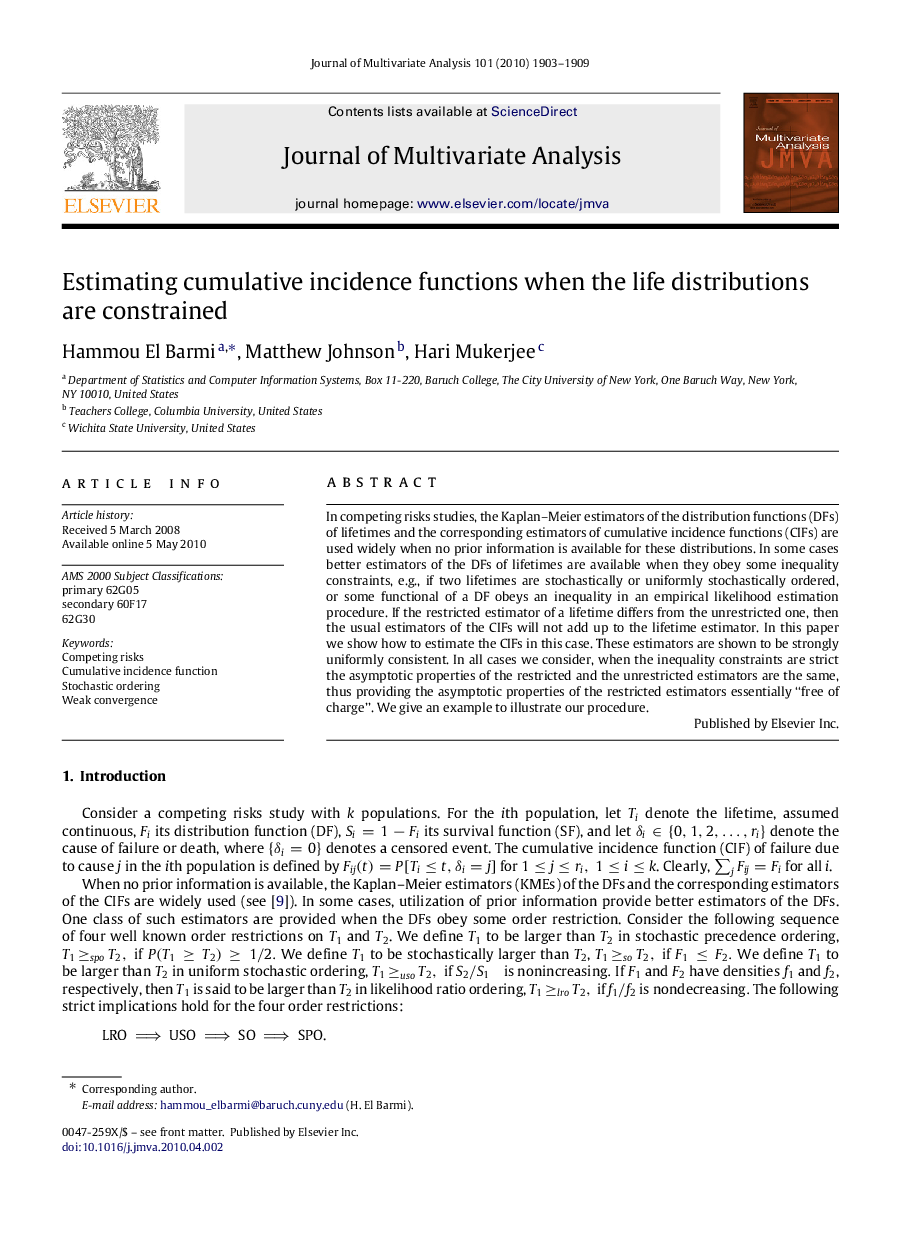| Article ID | Journal | Published Year | Pages | File Type |
|---|---|---|---|---|
| 1146457 | Journal of Multivariate Analysis | 2010 | 7 Pages |
In competing risks studies, the Kaplan–Meier estimators of the distribution functions (DFs) of lifetimes and the corresponding estimators of cumulative incidence functions (CIFs) are used widely when no prior information is available for these distributions. In some cases better estimators of the DFs of lifetimes are available when they obey some inequality constraints, e.g., if two lifetimes are stochastically or uniformly stochastically ordered, or some functional of a DF obeys an inequality in an empirical likelihood estimation procedure. If the restricted estimator of a lifetime differs from the unrestricted one, then the usual estimators of the CIFs will not add up to the lifetime estimator. In this paper we show how to estimate the CIFs in this case. These estimators are shown to be strongly uniformly consistent. In all cases we consider, when the inequality constraints are strict the asymptotic properties of the restricted and the unrestricted estimators are the same, thus providing the asymptotic properties of the restricted estimators essentially “free of charge”. We give an example to illustrate our procedure.
